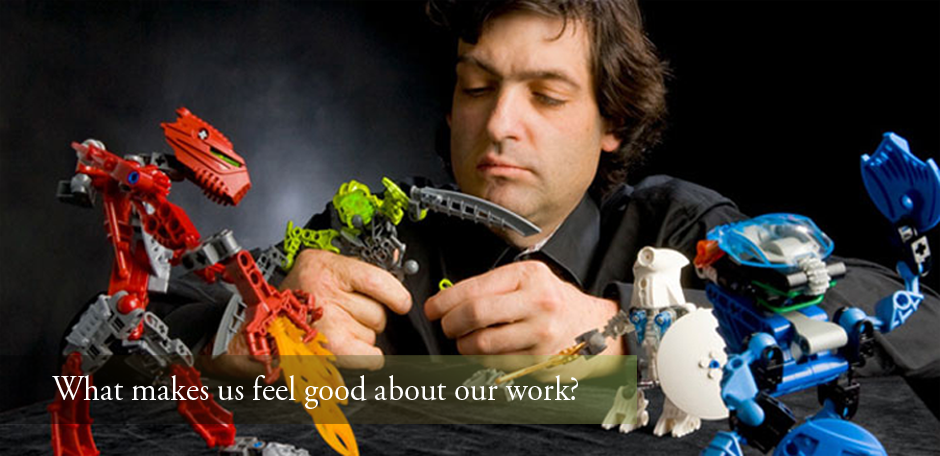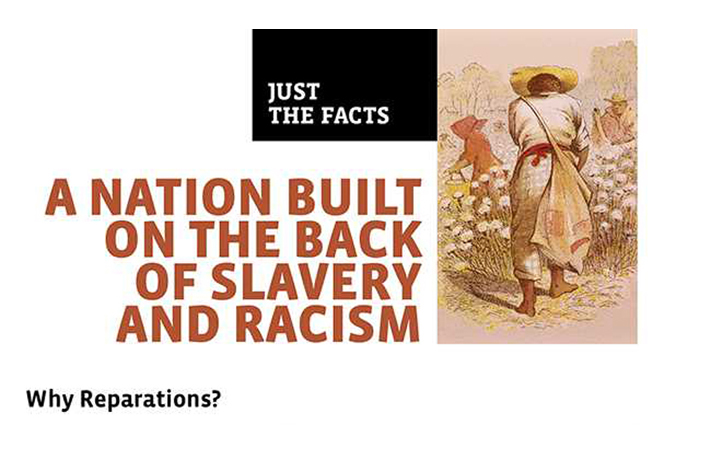Project Description

Why do we work and when do we feel good about what we do? In our private lives we pursue projects; we do mundane deeds. We wash the dishes, take out the garbage – clearly we want to be clean. We also do challenging deeds. We run marathons. Climb mountains. Pretty much, we do as we please. Rarely does anyone take time to ask the question, “What motivates me?” It is only when we choose a profession does it occur to us, there must be a reason.
When it comes to a career, most people presume that money drives a decision. With money comes dignity. How often do we hear a mother or a father encourage a child to be a doctor, a lawyer, or perhaps a banker, anything that brings in a prize salary? The thought that a child might want to grow up to be a teacher is nice. But it is understood the vocation comes with a price. Less esteem and your potential earning power sacrificed. There is also an endless examination. People will ask why did you go into teaching?
Summer vacation? Less frustration or is it constant consternation? For it seems whatever an educator may do, course preparation, professional development, or further certification he is never thought to know enough or have adequate skills. We have all heard the axiom, “Those who can do…” That particular portion of the adage is true. A teacher teaches. A doctor doctors and a lawyer practices the law. Each learned his or her profession with thanks to a teacher, and such is the reason a large swath of the population believes our children need a good teachers.
With fondness, we remember our favorites. I am not sure I can name only one educator who changed my life for the better. Indeed, I have had many great teachers beginning in third grade. Mrs. Kleefield’s energy awakened my brain. Mrs. Barton’s stories got me thinking. Once in High School, I found infinite inspiration. Mrs. I, Mr. K, Mr. P – And yes, there was Miss Z. She taught me how not to be an educator. There are many great teachers and a few who might be less than. That said I have never forgotten my many classmates who thought Miss Z. was the best. This dichotomy raises a question. How do we determine who is an excellent educator; is it a teacher like Miss Z. who was great for some and the worst for me, depending? That is the dilemma. If perspectives differ might there be a more accurate measure?
Is there a way to assess a teacher’s performance discounting for perceptions? Some theorize that standardized test scores can be revealing. If a student does well then it must be that her teacher teaches. But what does he teach – and whom does he reach?
It seems that we all agree – every child deserves a great teacher. So how might we create them?
Are some people just born to be great educators? Is it a matter of preparation? Can we train virtually anyone to be a sage or must there be in inherent sense of dedication? In recent months the debate has turned to teacher motivation. Increased salaries have proved inadequate for inspiration. If money does not provide meaning, might the answer be teacher tenure? Absolutely not, said a recent court decision. ‘Tenure, a Judge declared, ‘only ensures our children will receive a second-rate education.’ Then what might the answer be? What inspires us to work, to do the best job we can? Perhaps, it is what the Chief Executive Officer of a gargantuan Seattle software company missed and his 200 Engineers knew. Be we a Banker, a builder of Lego Bionicles, or yes even a teacher, we do what we do for far more “a challenge.” We are motivated by empathy, interactions, creation, challenges, identity, and pride – all that is meaning.
What motivates us to work? Contrary to conventional wisdom, it isn't just money. But it's not exactly joy either. It seems that most of us thrive by making constant progress and feeling a sense of purpose. Behavioral economist Dan Ariely presents two eye-opening experiments that reveal our unexpected and nuanced attitudes toward meaning in our work. (Filmed at TEDxRiodelaPlata.)
9:53
The next experiment was slightly different. We took a sheet of paper with random letters, and we asked people to find pairs of letters that were identical next to each other. That was the task. And people did the first sheet. And then we asked them if they wanted to do the next sheet for a little bit less money and the next sheet for a little bit less money, and so on and so forth. And we had three conditions. In the first condition, people wrote their name on the sheet, found all the pairs of letters, gave it to the experimenter. The experimenter would look at it, scan it from top to bottom, say “uh huh” and put it on the pile next to them. In the second condition, people did not write their name on it. The experimenter looked at it, took the sheet of paper, did not look at it, did not scan it, and simply put it on the pile of pages. So you take a piece, you just put it on the side. And in the third condition, the experimenter got the sheet of paper and directly put it into a shredder. What happened in those three conditions?
10:56
In this plot I’m showing you at what pay rate people stopped. So low numbers mean that people worked harder. They worked for much longer. In the acknowledged condition, people worked all the way down to 15 cents. At 15 cents per page, they basically stopped these efforts. In the shredder condition, it was twice as much — 30 cents per sheet. And this is basically the result we had before. You shred people’s efforts, output, you get them not to be as happy with what they’re doing. But I should point out, by the way, that in the shredder condition, people could have cheated. They could have done not so good work, because they realized that people were just shredding it. So maybe the first sheet you would do good work, but then you see nobody is really testing it, so you would do more and more and more. So in fact, in the shredder condition, people could have submitted more work and gotten more money and put less effort into it. But what about the ignored condition? Would the ignored condition be more like the acknowledged or more like the shredder, or somewhere in the middle? It turns out it was almost like the shredder.
12:00
Now there’s good news and bad news here. The bad news is that ignoring the performance of people is almost as bad as shredding their effort in front of their eyes. Ignoring gets you a whole way out there. The good news is that by simply looking at something that somebody has done, scanning it and saying “uh huh,” that seems to be quite sufficient to dramatically improve people’s motivations. So the good news is that adding motivation doesn’t seem to be so difficult. The bad news is that eliminating motivations seems to be incredibly easy, and if we don’t think about it carefully, we might overdo it. So this is all in terms of negative motivation or eliminating negative motivation.
12:46
The next part I want to show you is something about the positive motivation. So there is a store in the U.S. called IKEA. And IKEA is a store with kind of okay furniture that takes a long time to assemble. (Laughter) And I don’t know about you, but every time I assemble one of those, it takes me much longer, it’s much more effortful, it’s much more confusing. I put things in the wrong way. I can’t say enjoy those pieces. I can’t say I enjoy the process. But when I finish it, I seem to like those IKEA pieces of furniture more than I like other ones.
13:26
And there’s an old story about cake mixes. So when they started cake mixes in the ’40s, they would take this powder and they would put it in a box, and they would ask housewives to basically pour it in, stir some water in it, mix it, put it in the oven, and — voila! — you had cake. But it turns out they were very unpopular. People did not want them. And they thought about all kinds of reasons for that. Maybe the taste was not good. No, the taste was great. What they figured out was that there was not enough effort involved. It was so easy that nobody could serve cake to their guests and say, “Here is my cake.” No, no, no, it was somebody else’s cake. It was as if you bought it in the store. It didn’t really feel like your own. So what did they do? They took the eggs and the milk out of the powder. (Laughter) Now you had to break the eggs and add them. You had to measure the milk and add it, mixing it. Now it was your cake. Now everything was fine.
14:28
(Applause)
14:38
Now I think a little bit like the IKEA effect, by getting people to work harder, they actually got them to love what they’re doing to a higher degree.
14:46
So how do we look at this question experimentally? We asked people to build some origami. We gave them instructions on how to create origami, and we gave them a sheet of paper. And these were all novices, and they built something that was really quite ugly — nothing like a frog or a crane. But then we told them, we said, “Look, this origami really belongs to us. You worked for us, but I’ll tell you what, we’ll sell it to you. How much do you want to pay for it?” And we measured how much they were willing to pay for it. And we had two types of people. We had the people who built it, and we had the people who did not build it and just looked at it as external observers. And what we found was that the builders thought that these were beautiful pieces of origami, and they were willing to pay for them five times more than the people who just evaluated them externally. Now you could say, if you were a builder, do you think that, “Oh, I love this origami, but I know that nobody else would love it?” Or do you think, “I love this origami, and everybody else will love it as well?” Which one of those two is correct? Turns out the builders not only loved the origami more, they thought that everybody would see the world in their view. They thought everybody else would love it more as well.
16:02
In the next version we tried to do the IKEA effect. We tried to make it more difficult. So for some people we gave the same task. For some people we made it harder by hiding the instructions. At the top of the sheet, we had little diagrams of how do you fold origami. For some people we just eliminated that. So now this was tougher. What happened? Well in an objective way, the origami now was uglier, it was more difficult. Now when we looked at the easy origami, we saw the same thing: Builders loved it more, evaluators loved it less. When you looked at the hard instructions, the effect was larger. Why? Because now the builders loved it even more. They put all this extra effort into it. And evaluators? They loved it even less. Because in reality it was even uglier than the first version. Of course, this tells you something about how we evaluate things.
17:03
Now think about kids. Imagine I asked you, “How much would you sell your kids for?” Your memories and associations and so on. Most people would say for a lot, a lot of money — on good days. (Laughter) But imagine this was slightly different. Imagine if you did not have your kids, and one day you went to the park and you met some kids, and they were just like your kids. And you played with them for a few hours. And when you were about to leave, the parents said, “Hey, by the way, just before you leave, if you’re interested, they’re for sale.” (Laughter) How much would you pay for them now? Most people say not that much. And this is because our kids are so valuable, not just because of who they are, but because of us, because they are so connected to us and because of the time and connection. And by the way, if you think that IKEA instructions are not good, think about the instructions that come with kids. Those are really tough. (Laughter) By the way, these are my kids, which, of course, are wonderful and so on. Which comes to tell you one more thing, which is, much like our builders, when they look at the creature of their creation, we don’t see that other people don’t see things our way.
18:20
Let me say one last comment. If you think about Adam Smith versus Karl Marx, Adam Smith had the very important notion of efficiency. He gave an example of a pin factory. He said pins have 12 different steps, and if one person does all 12 steps, production is very low. But if you get one person to do step one and one person to do step two and step three and so on, production can increase tremendously. And indeed, this is a great example and the reason for the Industrial Revolution and efficiency. Karl Marx, on the other hand, said that the alienation of labor is incredibly important in how people think about the connection to what they are doing. And if you make all 12 steps, you care about the pin. But if you make one step every time, maybe you don’t care as much.
19:10
And I think that in the Industrial Revolution, Adam Smith was more correct than Karl Marx, but the reality is that we’ve switched and now we’re in the knowledge economy. And you can ask yourself, what happens in a knowledge economy? Is efficiency still more important than meaning? I think the answer is no. I think that as we move to situations in which people have to decide on their own about how much effort, attention, caring, how connected they feel to it, are they thinking about labor on the way to work and in the shower and so on, all of a sudden Marx has more things to say to us. So when we think about labor, we usually think about motivation and payment as the same thing, but the reality is that we should probably add all kinds of things to it — meaning, creation, challenges, ownership, identity, pride, etc. And the good news is that if we added all of those components and thought about them, how do we create our own meaning, pride, motivation, and how do we do it in our workplace and for the employees, I think we could get people to both be more productive and happier.
20:15
Thank you very much.
20:17
(Applause)
Dan Ariely, Behavioral economist
It’s become increasingly obvious that the dismal science of economics is not as firmly grounded in actual behavior as was once supposed. In “Predictably Irrational,” Dan Ariely tells us why.










